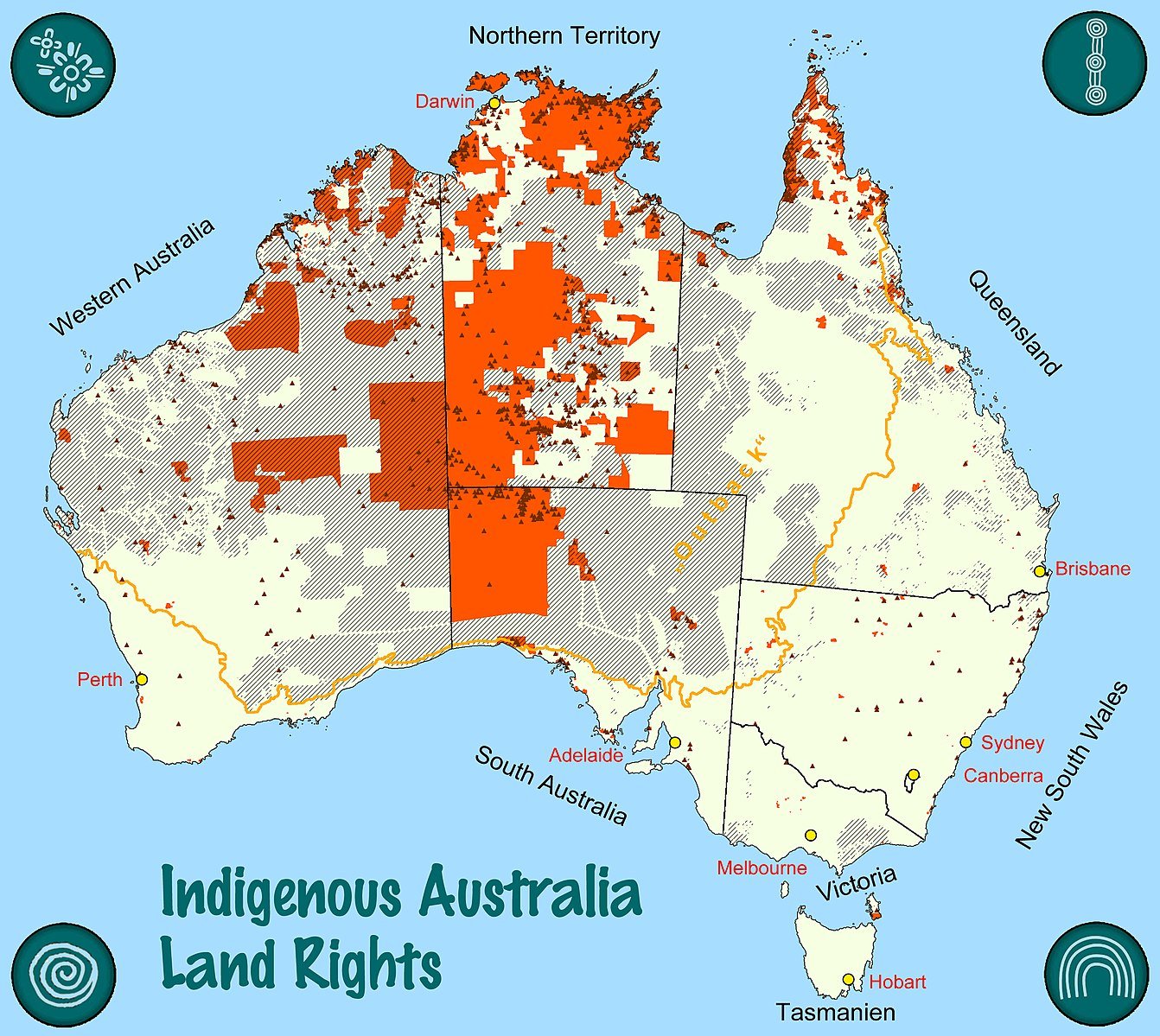Indigenous leaders named 2023 NT Australians of the Year
Indigenous Australian Map (Wikimedia)
Samuel Bush-Blanasi, an Aboriginal resident of the Wugularr community in Katherine, Australia, was named the 2023 Northern Territory Australian of the Year, according to National Indigenous Television. He and three others have worked for years to empower Indigenous communities in the Northern Territory and across Australia.
Bush-Blanasi has advocated for sea country rights, promoted of Indigenous business, and supported autonomy of Indigenous lands. He is also a chairman of the Northern Land Council, an advocacy group for Aboriginal rights in NT Australia; a founding member of the Association of Northern, Kimberley, and Arnhem Aboriginal Artists (ANKAAA), an advocacy and support agency for Aboriginal artists; and a renowned artist.
While recognizing Indigenous work and activism is vital for the advancement of these communities, government actions are less promising. Activists in Australia have expressed their frustration with how it is “much easier to perform symbolism than to address real issues in Indigenous communities,” especially in light of contemporary failures that the Australian government has yet to address. Australia’s Aboriginal communities face food scarcity, unclean or inaccessible water supplies, and underdeveloped infrastructure due to historical exploitation and resource extraction by companies on a scale only possible through the government’s negligence.
Furthermore, according to an address from Assistant Minister for Treasury Andrew Leigh, Indigenous groups, specifically children, are overrepresented in the carceral system, with over one in thirty Aboriginal Australians currently incarcerated in West Australia. Indigenous children are twenty times more likely to be incarcerated than any other group in the nation because of harsher prison sentencing, over-policing, lack of financial investment, and excused police brutality.
Violence against Aboriginal peoples is not new in Australia, but activists like Bush-Blanasi and pushes for more indigenous representation in the Australian government are necessary steps in repairing the damage done to these communities.

